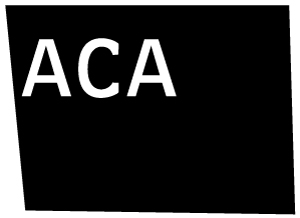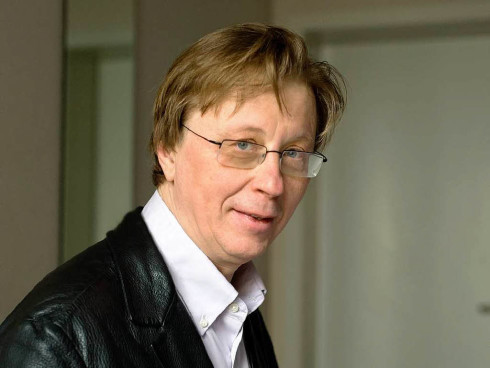Residency Dates: June 26, 2016 - July 16, 2016
Application Deadline: January 24, 2016
Sir Simon Rattle called Georg Friedrich Haas’ 65 minutes pices for chamber orchestra in vain the „first masterpiece oft he 21st century“.
Alex Ross wrote, mentioning Haas’ 3rd String quartet in iij noct., which has to be performed in complete darkness: In the past decade, Haas, […] has emerged as one of the major European composers of his generation. He is allied with the French spectralist school, which draws musical material from a close analysis of overtones and other properties of sound. Haas also esteems various American experimental composers, particularly those who are concerned with microtonality, the division of the octave into more than the usual twelve pitches. In this way, he bridges a gap between American and European musical communities that historically have had little to say to each other. What sets him apart from many of his European contemporaries is that he is not afraid of theatrical gestures, opulent expanses of sound, landscapes on an almost Wagnerian scale. Not for him the studiously fragmented modernist discourse that Ligeti once defined as “event—pause—event.” He is an esoteric Romantic, dwelling on the majesty and terror of the sublime. (The New Yorker, Nov. 29, 2010)
Born 08/16/1953 in Graz (Austria), grown up in the mountains near the Swiss border, started to compose seriousely in 1974.
Teaching experience:
Professor at the Univerity of Arts in Graz (teaching since 1978)
Professor for Composition at the Musik Academy of Basel (2005 to 2013)
Since August 2013 MacDowell Professor of Music at the Columbia University in New York
Compositions (selection):
Chamber music: 8 string quartets, 16 solo pieces, e.g. de terrae fine for violin solo, and I can’t breathe for trumpet solo, 18 pieces for chamber groups (2 to 8 performers), e.g. tria ex uno for 6 instruments, Anachronisme for 7 instruments, and octet for 8 trombones
8 Orchestra pieces (e.g. natures mortes, and dark dreams)
7 concerts for soloists and orchestra (soloists: e.g. violin, violoncello, baritone saxophone, solopiano, 4 Swiss alphorns, 6 pianos tuned in distances of thwelth of tones, and others)
7 operas, next premieres: morning and evening (Royal Oper House London, November 2015) and KOMA (Schwetzinger Festspiele May 2016)
20 works for chamber orchestra with and wothout soloists, e.g. in vain, Ich suchte, aber ich fand ihn nicht, chants oubliees, Unheimat , Wer, wenn ich schriee, hörte mich, Monodie.
10 Cantatas and other vocal works, (ATTHIS, wie stille brannte das Licht)
orchestra works based on historical music: Torso (sound composition related to Schubert’s unfinished piano sonata D840), opus 68 (instrumentation of Skrjabin’s 9th piano sonata), 7 Klangräume (related to Mozart’s requiem“), instrumentation of 4 songs of Charles Ives
some pieces also use electronics (…und… for chamber ensemble and electronics, les temps tiraillees for 2 violas, bassoon and electonics, ein Schattenspiel for piano and electronic)
several Austrian and German awards
Member of the „österreichischer Kunstsenat“ (Austrian art council), the „Akademie der Künste Berlin“ (academy of Arts, Berlin), and the „bayerische Akademie der schönen Künste“ (Bavarian academy of fine arts)
Residency Statement
I look forward to working with mid-career composers and instrumentalists. We will discuss and analyze music: compositions of mine as well as great works of other composers from various centuries.
If we want to create new music we must not try to construct structures which never before have been constructed. This never has, and never will, be effective. We must learn to trust our inner voices, our individual imaginations, our artistic yearnings.
I will strive to develop connections between composers and instrumentalists.
Application Requirements
- CV (.doc, .docx, .pdf)
- A letter of intent (.doc, .docx, .pdf)
- Composers: at least two scores plus (if possible) recordings of performances of these pieces (pdf and mp3-files).
- Instrumentalists: recording of performances (mp3) plus a list of those compositions of mine which they want to rehearse. Only instrumentalists who bring their own instruments with them are encouraged to apply. Please note ACA does have 1 – Steinway B-Model Piano (music studio) and 1 – Steinway L-Model Piano (theater).
Residency Fee: $900
Includes a $100 administration fee, weekday meals and housing; does not include artist materials, transportation, or weekend meals.
Scholarships / Financial Assistance
Only accepted Associate Artists may apply for financial assistance. For details, please visit the master artist details page.

